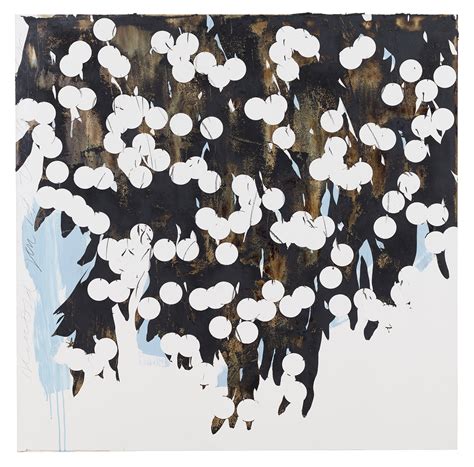A Quote by Cassandra Clare
We as artists are actively encouraged - by other authors, your agent, publisher, and society - not to think about money, strategy, how to manage your career, how to create a brand, because we're supposed to focus on the art.
Related Quotes
Treat your career like a bad boyfriend...
Your career wont take care of you. It won't call you back or introduce you to its parents. Your career will openly flirt with other people while you are around... You have to care about your work, but not about the result. You have to care about how good you are and how good you feel, but not about how good people think you are or how good people think you look.
Artists raise their kids differently. We communicate to the point where we probably annoy our children. We have art around the house, we have books, we go to plays, we talk. Our focus is art and painting and dress-up and singing. It's what we love. So I think you can see how artists in some way raise other artists.
I think everything in life is art. What you do. How you dress. The way you love someone, and how you talk. Your smile and your personality. What you believe in, and all your dreams. The way you drink your tea. How you decorate your home. Or party. Your grocery list. The food you make. How your writing looks. And the way you feel. Life is art.
Products, profits, and paychecks are not enough anymore. These days, society cares how you treat your own workers. Customers want to know you promote the same values inside your walls as you do outside; job hunters want to know you care about them before they send in an application. Your culture is your brand. You need to create an organization where your employees believe in what you do.
I will do plays as long as they're interested in having me do them. It's the biggest opportunity to learn the most about how to act. Something I discover every time I'm doing one is how little I know about acting - how important the art of listening is, and how important it is to listen with your entire body. You can tell so much of a story with stillness, and a lot of that can be from really actively listening to your scene partner.
I think that's a challenge as believers - how do you demonstrate the gospel? How do you do that? I mean it's easy to talk about it and say 'Oh this is what we are supposed to be doing' and this is the relevance. But how do you do that with your hands instead of your mouth? How do you do it every day, instead of just onstage, how is it enacted? And I feel like that is one of the ways that we can show what we believe, by how we treat people around the world.



































